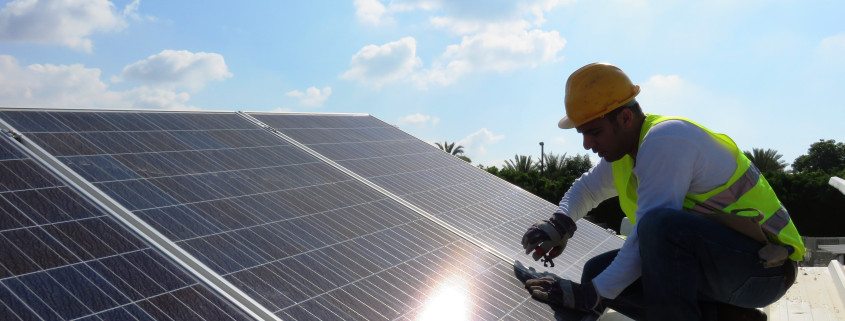What the Extension of the Federal ITC Means for You
At the end of 2016, the Solar Investment Tax Credit (ITC) set in place by the Energy Policy Act of 2005 was about to expire. This tax credit gives homeowners and business owners the opportunity to apply a credit to their federal income taxes when they purchase a solar energy system and have it installed in their home or business. Initially set to expire at the end of 2007, the ITC had already been extended several times through various bills and acts, and advocates were worried that the bill would reach its untimely demise at the end of 2016. But thanks to the work of Congress, the spending bill is still intact and will remain so through 2019 with its current deduction figures.
What the ITC Does and Where It’s Going
As it stands, the ITC allows for a 30 percent deduction on your federal taxes for installing a solar energy system. This tax credit applies to both commercial and residential solar systems and has saved many homeowners and business owners money. While the 30 percent credit will remain through the end of 2019, the deduction will decrease to 26 percent in 2020 and 22 percent in 2021. Beginning in 2022, the deduction will be 10 percent and will remain there permanently—for commercial solar energy systems only. The federal tax credit for residential solar will then be nonexistent. Commercial projects whose construction starts during a certain year will continue to receive the deductions set for that year—and owners can claim the deduction as soon as the construction begins, as long as the business is operational by December 31, 2023.
Residential Solar and the U.S. Economy
While this is good news for the commercial sector, residential solar hopefuls will only have a few remaining years to purchase a solar energy system for their homes. Due to the fact that time for the tax credit is running short, many homeowners are expected to take advantage of the deductions through the end of 2021, which will create a projected 220,000 jobs in the solar industry before 2020—more than doubling the number of solar employees as of 2015. It is also projected that by 2020, solar energy will make up more than 3.5 percent of all electricity in the U.S. The combination of these projections would mean that the solar industry would add over $30 billion annually to the U.S. economy.
The solar energy industry has made a pledge to hire as many as 50,000 veterans—and with the extension of the ITC, employers can make good on this pledge. It is estimated that by 2020, the U.S. economy will have gained over $133 billion in private sector investment. The U.S. economy’s growth is not the only benefit; the increase in solar energy use will mean that America will become a leader in clean energy and a model for other nations.
Effects on Individuals
So what does this mean for homeowners and business owners interested in solar installation? First and foremost, if you’re a homeowner, your time to install solar is running out. While the ITC extension is viewed as a positive thing on all sides, keep in mind that the benefits won’t last forever, and you might want to take action sooner rather than later. Of course, for business owners, the best time to take action is sooner rather than later as well in order to receive the highest deduction.
If you have been contemplating installing a solar energy system, there are a couple more things to take into account. If you want to be sure to be eligible for the tax credit, you must purchase your own solar energy system. If you sign a lease with a company that installs solar systems, that means that the company owns the system, not you—which means that you would be prevented from receiving the tax deduction. After you own your solar system and have it installed, you can speak with your accountant to be sure that the necessary information is included on your federal tax return for the year that the system was installed. Experts recommend that homeowners get several quotes for solar installation in order to receive the best price when shopping around. Keep in mind that the larger companies aren’t necessarily the best choices, nor do they necessarily offer the best installation deals. In many cases, the larger companies also do not have as many equipment options, so you may not be getting the best price or the best setup—which means that you may not be receiving the highest energy savings either. Be sure to do some research if you are a homeowner interested in solar, and get quotes, recommendations, and comparisons before selecting an installation company.
What will the future of solar energy look like after 2021? Seeing as how the solar industry may very well boom and boost the economy over the next few years, proponents of solar and clean energy can only hope that Congress will change their minds and further extend the ITC. The fact that commercial solar installations will continue to receive a lesser tax credit is encouraging, but if the solar industry increases jobs and revenue as expected, lawmakers may not want it to end come 2021. And with the push for efficient and clean energy, one would see solar as the perfect solution. While the future of the ITC remains uncertain, now is the time to take advantage of the tax deductions and have solar panels installed in your home or business—while you still can.
Walker Reid Strategies specializes in energy efficiency, focusing on 179D deductions and 45L tax credits. We partner with many energy and tax organizations to educate and advise the public on strategies for energy efficiency and related tax deductions and benefits. Contact us directly for more information.



